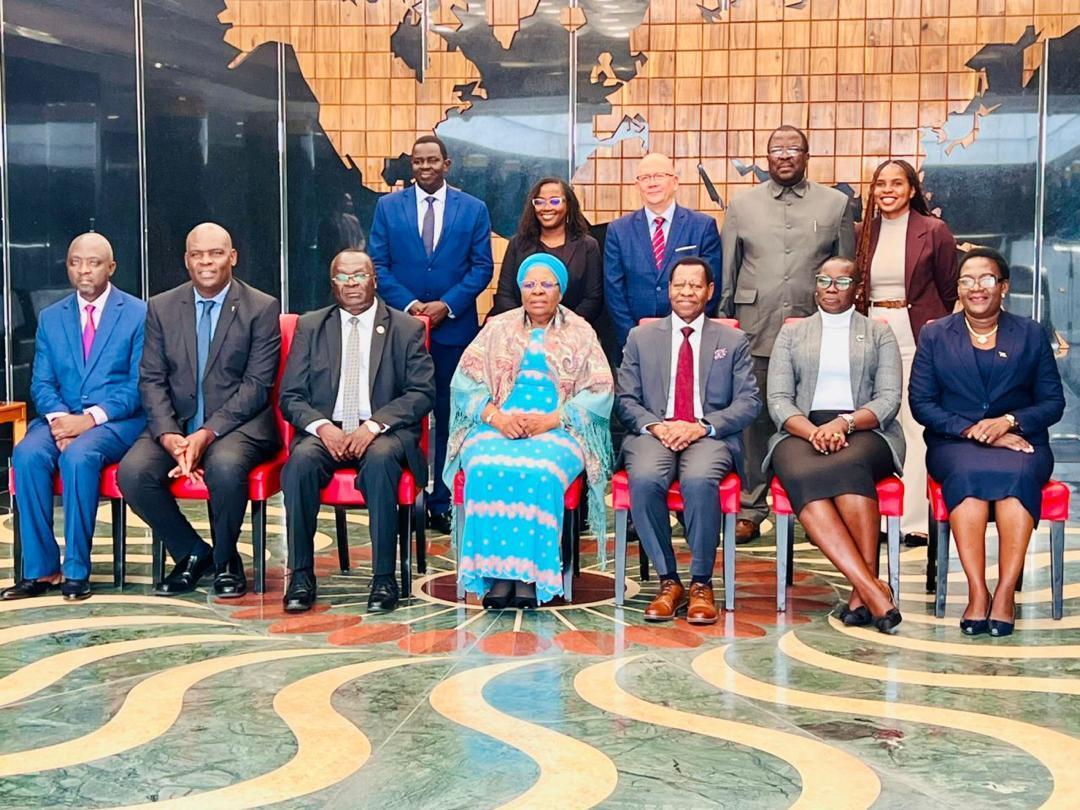Africa-Press – Namibia. Namibia and Uganda have agreed to cooperate in improving their court systems by utilising traditional methods of resolving disputes, known as alternative dispute resolution (ADR).
Uganga’s Chief Justice (CJ) Alfonse Chigamoy Owiny-Dollo visited Namibia last week to
strengthen and support this effort.
On Friday, Namibia’s CJ Peter Shivute and Owiny-Dollo paid a courtesy visit to President Netumbo Nandi-Ndaitwah to share their progress and ideas.
“ADR is part of our customs. We should anchor our countries in cultural systems to develop,” Nandi-Ndaitwah said. She has always encouraged traditional leaders to use local customs to resolve issues such as family and inheritance disputes.
“The judiciary is there to serve the people,” she stated, adding that the new justice reforms, like plea bargaining and ADR, will help reduce the heavy workload in courts.
The President said the cooperation between Namibia and Uganda’s courts fits well with the long-standing friendship between the two nations.
“When president Yoweri Museveni was in Dar es Salaam, he always nurtured and supported a closer relationship with the liberation movement, Swapo,” Nandi-Ndaitwah recalled.
“That cooperation continues today between our governments and now also our judiciaries,” she added. Shivute said the visit was part of a long friendship between the two countries.
“The judiciaries of Uganda and Namibia have had a long history of cooperation. This time around, we formalised our relationship through the signing of a memorandum of understanding,” he said.
The agreement focuses on improving how courts work, especially by using technology and trying ADR. This method helps people settle disputes without long and expensive court cases.
Shivute said ADR is a new idea in Namibia but it is common in many parts of the world.
“This agreement helps us share ideas and use technology to make our courts work better. We also want to learn from Uganda’s experience with ADR and plea bargaining,” he said.
He noted that ADR could help Namibia solve cases faster and more peacefully.
“Rather than following the traditional way of resolving disputes, you can come to the same resolution by involving the parties, making concessions, and negotiating in the spirit of give and take,” he noted.
He said Namibia recently held a national conference to discuss how to start using plea bargaining and ADR. “We brought representatives from all three arms of government to one room. The conference was highly successful. We agreed to create a standing committee to lead this process,” Shivute continued.
On the day, Owiny-Dollo shared Uganda’s experience. He said before colonial times, African communities had their justice systems.
“These disputes were resolved. But colonialism brought a legal system that was not ours. Now, the system is complex and expensive. Many people cannot benefit,” he said.
He revealed that only 10% of disputes in Uganda go through the formal courts. “The mega question was, what happens to the other 90%?” Owiny-Dollo questioned.
“How come there is no bloodletting? People are not cutting themselves,” he remarked.
He said it proves that traditional systems still work in many areas.
For More News And Analysis About Namibia Follow Africa-Press






